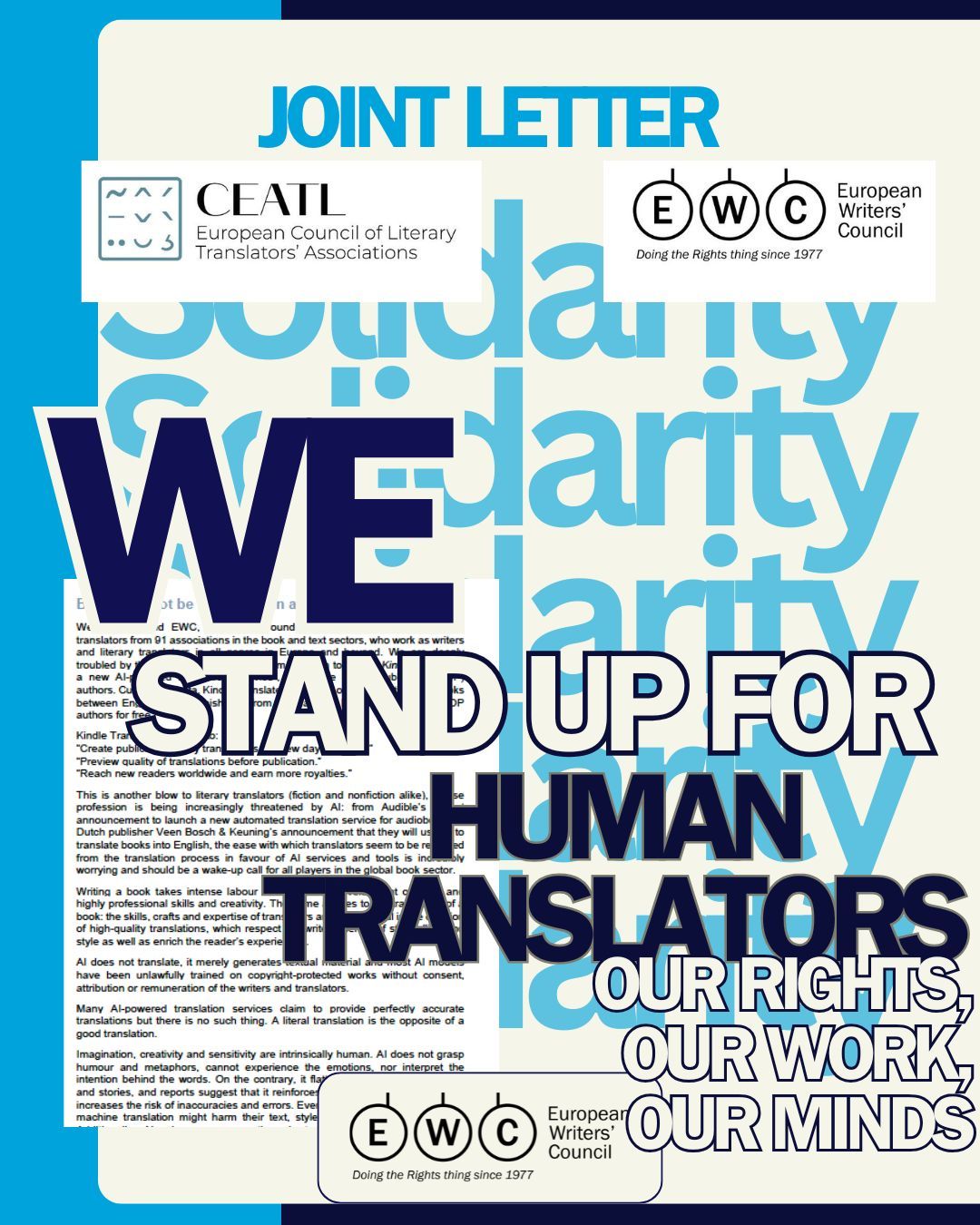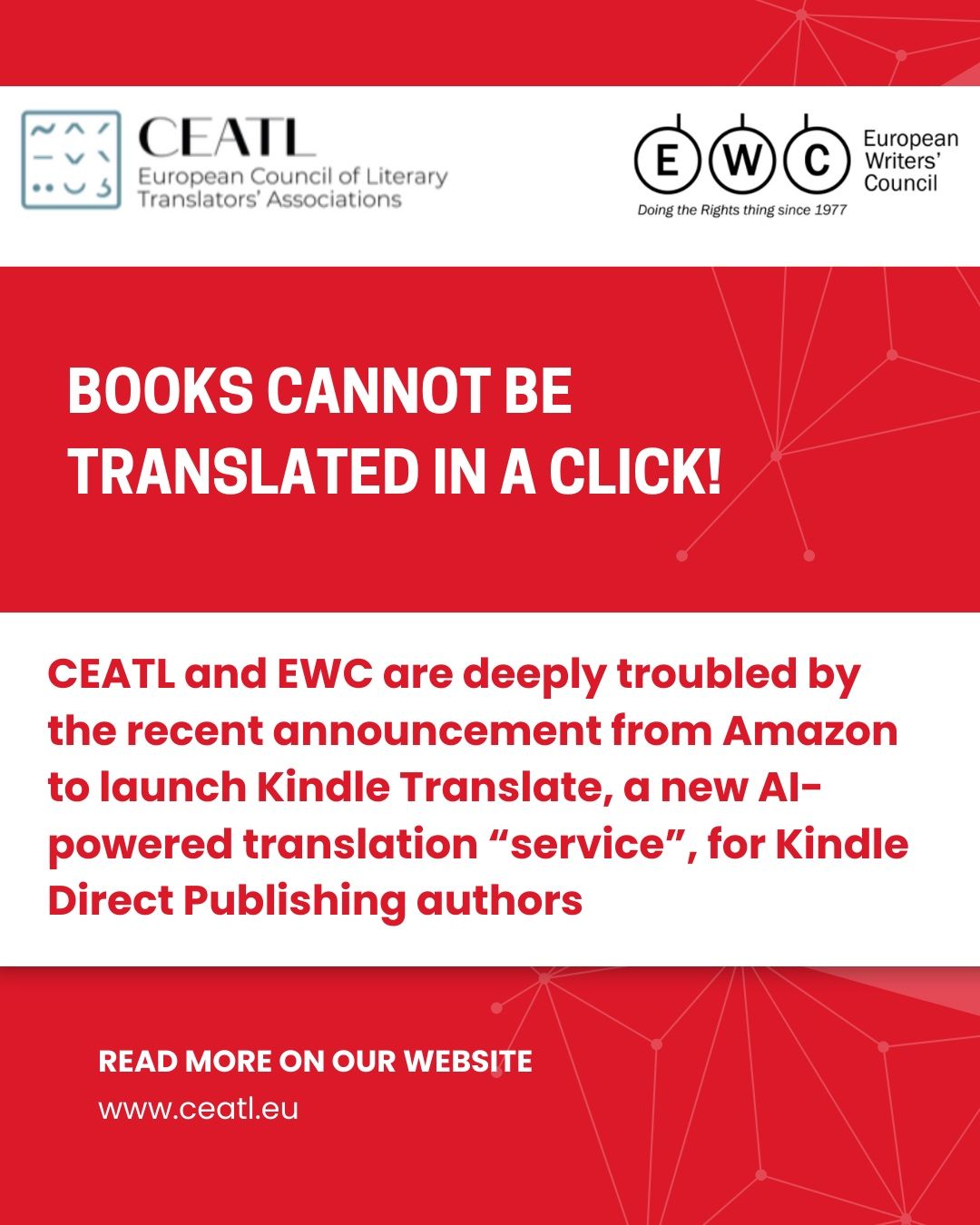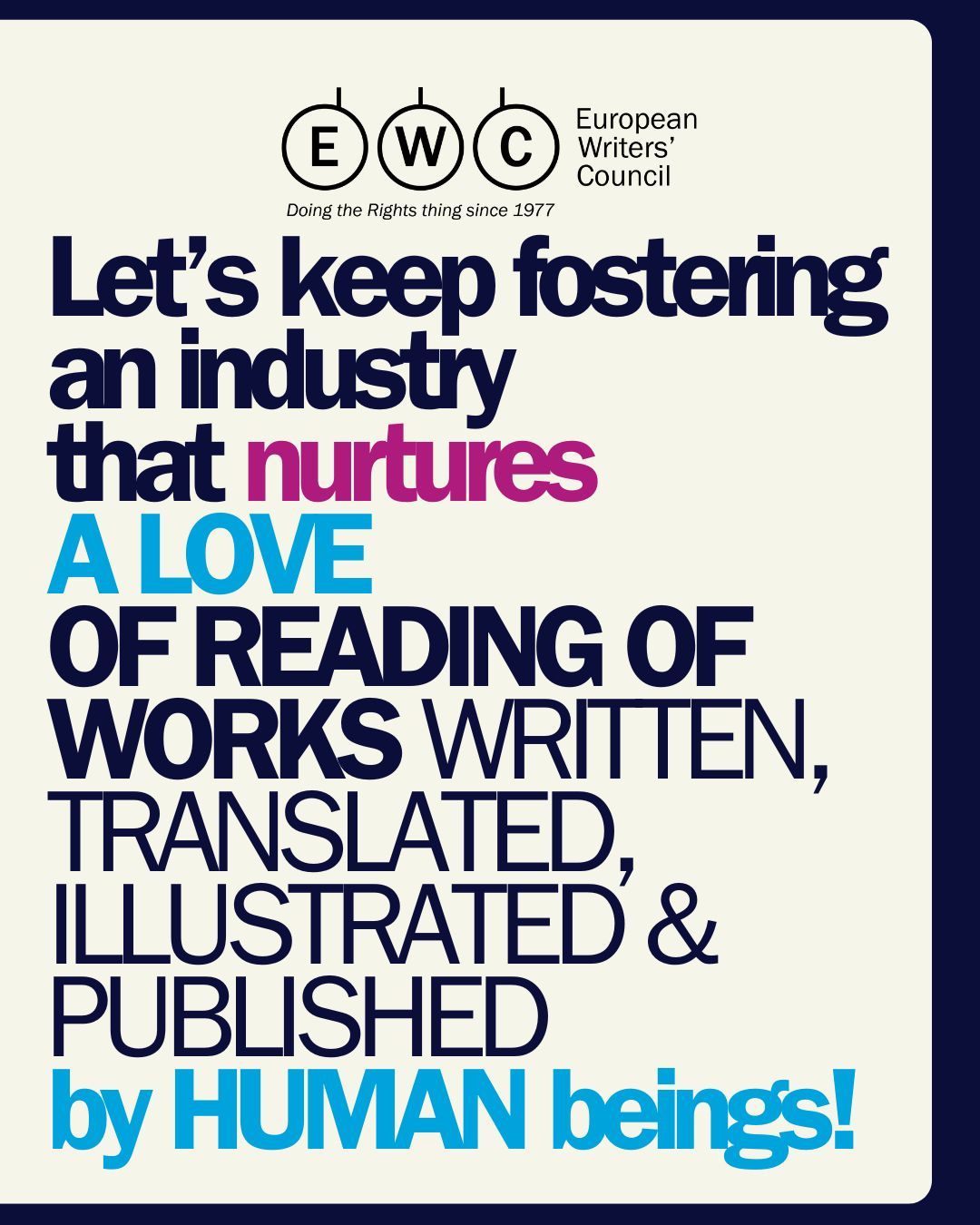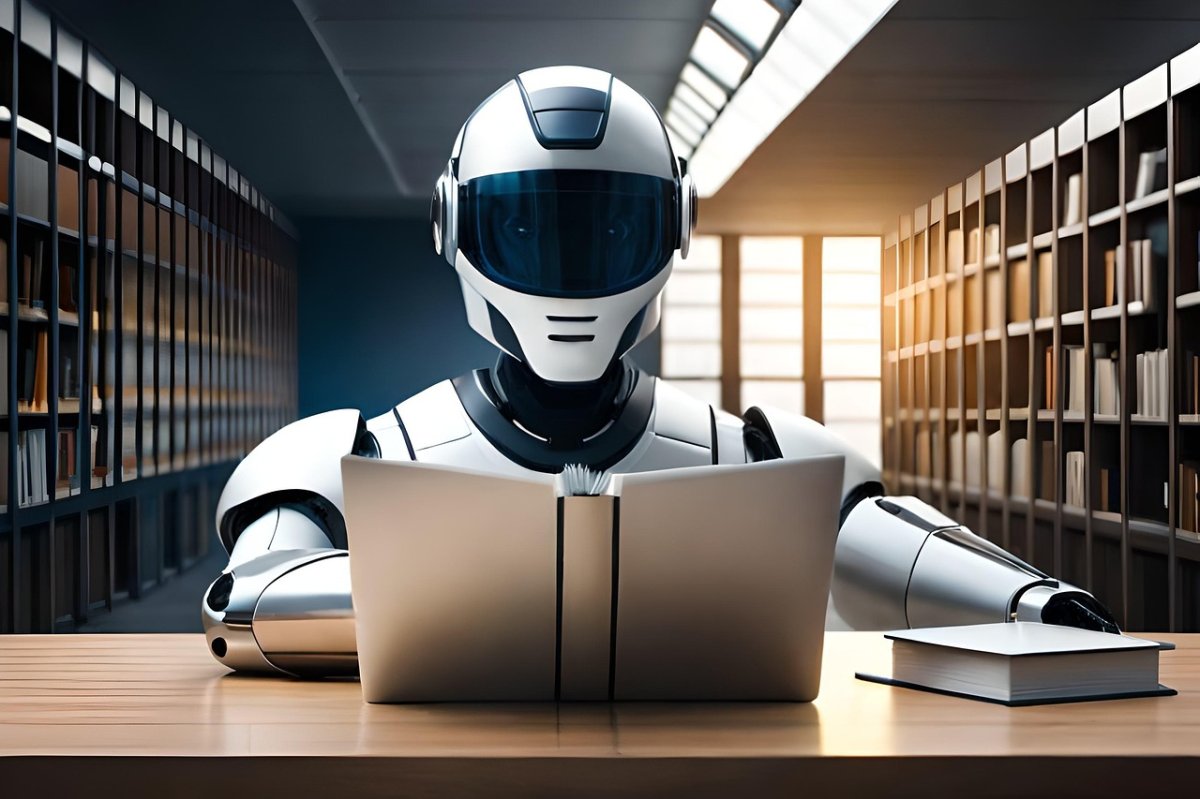Monday 24 November - Representing around 260.000 individual authors and translators from 91 associations and across literary genres, CEATL and EWC issued a joint letter calling on writers, agents, publishers and readers, to stand in solidarity with human literary translators against "incredibly worrying" AI-related threats.
Their initiative aims to mobilise ALL players in the global book sector:
“Let’s protect writers’ and translators’ work, their diverse creativity and their livelihood.
Let’s protect culture and champion rich human creativity.
Let’s defend ourselves against the logics of mere profit”.

The statement comes in response to Amazon’s recent announcement of the AI-powered translation tool Kindle Translate, initially between English and Spanish and from German into English. The new tool follows a series of similar products launched, such as Audible’s new AI service translating into English, audiobooks of Dutch publisher Veen Bosch & Keuning’s.

“Many AI-powered translation services claim to provide perfectly accurate translations but there is no such thing,” reads the letter.
“Every author must be aware that a machine translation might harm their text, style, and hence their reputation,” warn the signatories.
“Imagination, creativity and sensitivity are intrinsically human [...] AI does not grasp humour and metaphors, cannot experience the emotions, nor interpret the intention behind the words,” the letter continues.

Signatories highlight that “most AI models have been unlawfully trained on copyright-protected works without consent, attribution or remuneration of the writers and translators”.
They note that “AI raises many questions in terms of accountability of the automated, non-protected output that is remixed and generated by an AI model” and that reports suggest that “AI reinforces biases and stereotypes, and increases the risk of inaccuracies and errors”.
Signatories voice a wake-up call for all players in the global book sector against the increasing threats that AI poses to their life-long development of profession and to the creation of high-quality translations, “which respect the writer’s sense of storytelling and style as well as enrich the reader’s experiences”.
Find the letter here
Image by zoha noor from Pixabay











